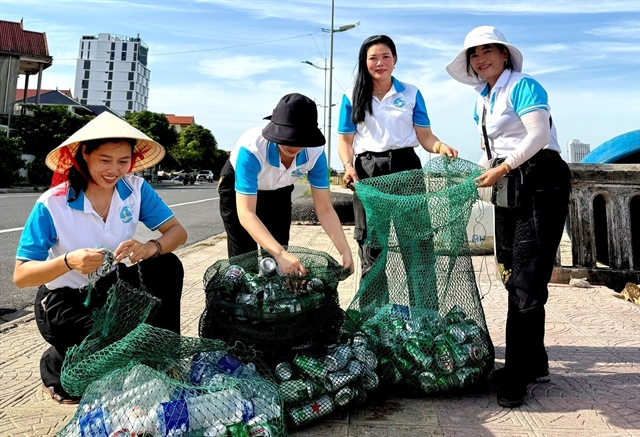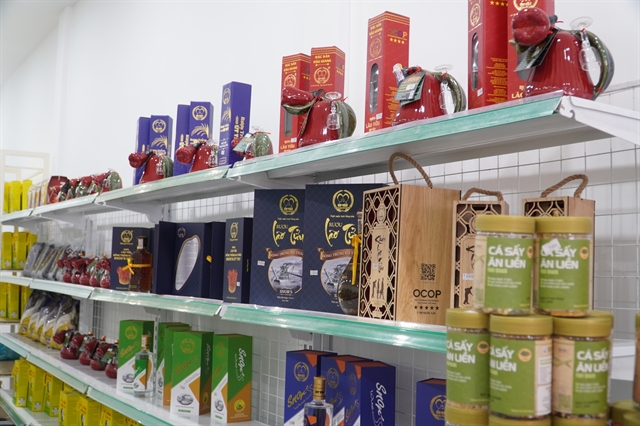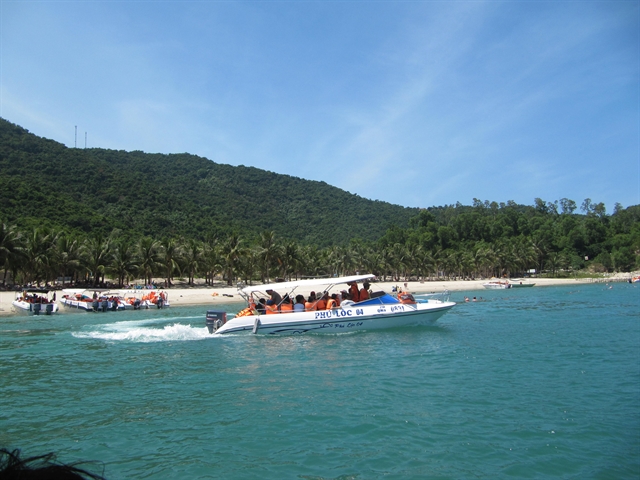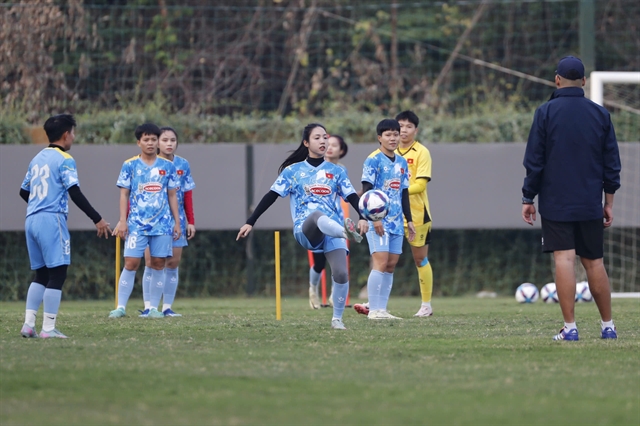 Environment
Environment

Công Thành
CHÀM ISLANDS — The Chàm Islands off the coast of Hội An have since 2015 limited the number of tourists permitted to 3,000 per day to protect the vulnerable world biosphere reserve site from being overrun by boats and waste, but the area is in crisis despite these efforts.
Leaders of the protected area have expressed reluctance to allow in more boats, but officials from neighbouring Đà Nẵng say they will go ahead with a plan to add a new route to the islands.
Director of the Chàm Islands-Hội An Marine Protected Area (MPA) Centre Trần Thị Hồng Thúy has advocated against allowing more tourists and boats from the neighbouring city of Đà Nẵng.

|
| A boat docks on a beach off the Chàm Islands. The world biosphere reserve is vulnerable to mass tourism with overloaded boats and logistics demands. — VNS Photo Công Thành |
In April, Đà Nẵng released a plan to develop eight aquatic tourism services – including a direct boat route from the Hàn River to the Chàm Islands – by 2021.
However, the islands are already overloaded, with a fleet of 152 boats including 145 speed boats travelling between Cửa Đại Port in Hội An and the Islands (a distance of 20km).
“The Chàm Islands are not only a tourism attraction, but also a world biosphere reserve,” Thúy said. “They need a balance between tourism development and nature conservation.”
“Đà Nẵng and Hội An have had discussions about the plan to operate more boats to the Chàm Islands,” Thúy said. “However, the islands hold biodiversity conservation and sustainable development as their top priorities rather than mass tourism.”
Overloaded
The islands, which were recognised as a World Biosphere Reserve on over 33,000ha by UNESCO in 2009, hosted 21,000 tourists on the public holidays from April 27 to May 1 – an average of 4,200 visitors, far exceeding the daily limit.
In the first three months of this year, they hosted 54,000 visitors, a 69 per cent increase over the same period last year. The increase has stretched the food and fresh water supply – already a worry for the islands’ 2,400 residents – and put a strain on waste treatment services.
Vice Chairman of the People’s Committee of Tân Hiệp Commune in the centre of the islands, Mai Quốc Bảo, said the 80,000cu.m reservoir on the islands could only supply enough fresh water for residents, and the rising number of tourists meant there was not enough water for locals during the high season.
Tourism has also had severe ecological impacts. At a conference on conservation of the islands, Thúy said 66 per cent of the area’s sea grass was destroyed from 2009 to 2018, leaving just 17ha intact.
The damage was caused by the rapid increase of speed boats and fishing vessels over the past decade.
“The excessive number of speed boats has caused mass damage over a large area of sea grass off the islands and also destroyed safe shelter for marine species and fish,” Thúy said.
“Despite increasing the entrance fee from VNĐ30,000 to 70,000 in 2015 and imposing the daily limit, the Chàm Islands are barrelling towards an environmental tragedy in the next three or four years,” Vice Chairman Bảo said.
Vice Chairman of the Hội An People’s Committee Nguyễn Văn Sơn said that, in the spirit of maintaining conservation as the top priority, the islands would reject the development of large-scale hotel and resort projects.
Trần Lê Trà, an expert from German development agency GIZ, said the Chàm Islands offered tourism services at prices that were far too low.
“The islands have been seen as an ideal site with unique nature and status of a world biosphere reserve,” he said. “It is a challenge to balance conservation with tourism revenue.”
“The Chàm Islands need more investment in nature conservation with safe and hospitable tourism services,” Trà said. “The islands should only offer tourism products and services that do not damage marine and forest biodiversity.”
According to a report from the MPA, the biosphere reserve has 1,500ha of tropical forests and 6,700ha of sea featuring a wide range of marine fauna and flora.
Bùi Thị Thu Hiền from the International Union for Nature Conservation (IUCN) said the islands only have strict protection requirements for a core zone of 1 per cent of their total area. Hiền said the protection area should cover at least 30 per cent.
Lê Xuân Ái, an expert from the Chàm Islands MPA, said beaches on the islands have been reserved for turtle conservation since the island started a hatching programme on Bấc Beach in 2017.
Ái said human activities such as fishing and construction have seriously damaged the area’s seaweed and coral reefs, which shelter abundant aquatic species, and that allowing in more boats would only make the problems worse.
Disagreement
In an interview with local media, Deputy Director of Đà Nẵng’s tourism department said the Chàm Islands could not prevent boats from travelling from Đà Nẵng.
He said officials from the two localities will meet to discuss sustainable ways to implement the new route from Đà Nẵng to the islands. — VNS




